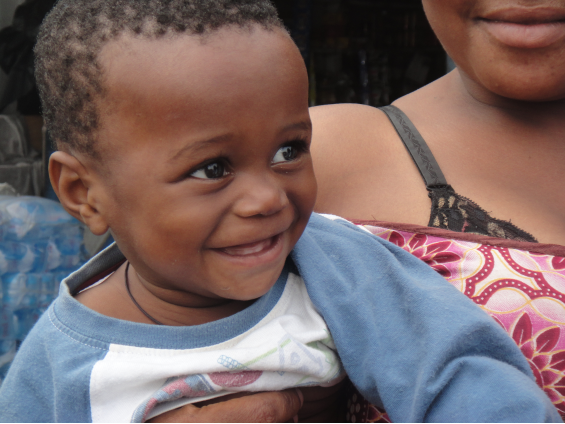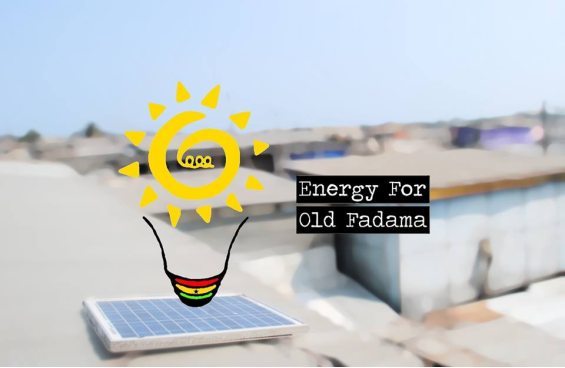Visit us online: www.efof.org.uk
Old Fadama - The Community
Old Fadama is home to at least 80,000 people (though estimates place the population at closer to 100,000 in 2013). The community in Old Fadama have very restricted access to the most basic of human necessities: running water, legal
electricity, sanitation, education and legal representation. One consequence of this situation is that the community live in one of the ten most polluted areas on earth. The lack of electricity means that the community must pay for illegal connections to the
national grid; these connections are inherently dangerous and any surge can start an electrical fire.
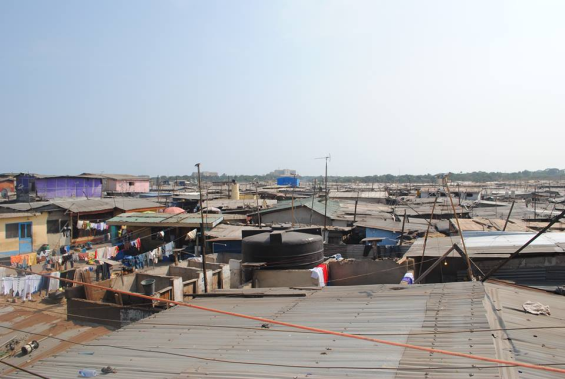
Electrical Fires - The Problem
A fire last year destroyed 3,500 homes and killed 2 children. A fire on October 25th destroyed around 200 homes. Solar power provides an effective solution to the problems of electricity and the lack of access. We are creating a
cost-effective solution. Even if connections are illegal, users are still charged a premium, but our solar systems will greatly reduce electricity costs for key community buildings, as well as reducing the risk of electrical fires occurring. We do not expect
to immediately replace the illegal infrastructure, as this will take time. However, our plan is not short-term; in our plan we have the potential to create a self-sustaining electricity infrastructure in a community that needs it most. With your help, we can
make this plan a reality.
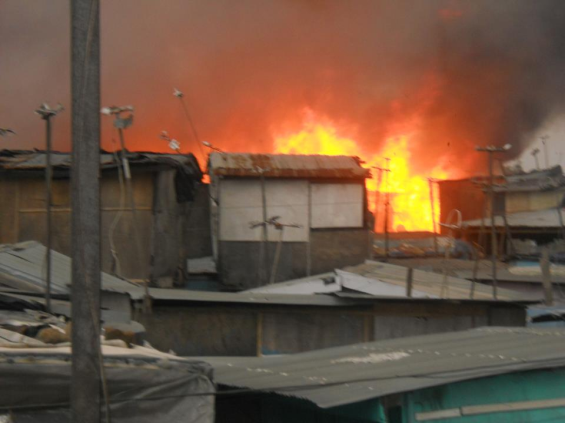
E-Waste
In addition to the poverty that the majority of Old Fadama's residents live in, it is also home to one of the world’s largest e-waste sites. This refers to the dumping of broken electronic goods - computers, televisions and other
electronic goods - instead of properly recycling them. This e-waste comes from various countries, notably the U.K., the United States, Canada, Australia and much of Europe. The goods are brought into Ghana under the premise of being donated to help bridge
the technological gap in Africa but end up simply sitting in landfill sites. Old Fadama’s boundaries are limited by Korle Lagoon, once called “one of the most polluted bodies of water on earth” by the Public Broadcasting Service (PBS).
This e-waste provides a common source of employment for boys and young men in Old Fadama, who sift through the waste, burning away the plastic to retrieve the copper wires inside that can be sold in nearby markets. This has highly
destructive effects on health, having carcinogenic properties, stunting growth, as well as various diseases in the lungs and brain. Many families do not have the resources to send their children to school, having to send them to work instead. This situation
is created by the high energy costs that accompany the use of kerosene, charcoal, wood and illegal electricity.
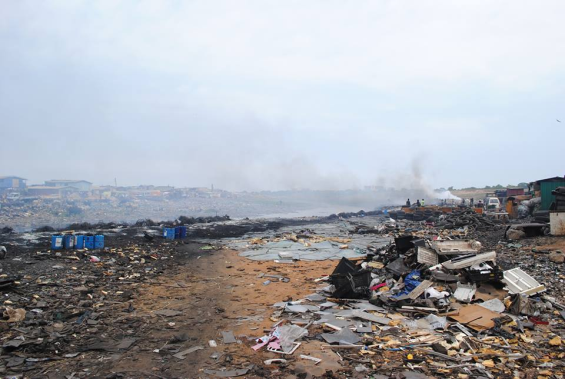
Energy for Old Fadama
The organisation was founded in July 2012 by David Boyd, during an internship with a human rights organisation in Accra. During his internship with PAHO, David saw the aftermath of a fire that had destroyed over 3,500 homes and killed two children. Following a chance meeting with a Renewable Energy Masters student, the plan was put in place. The team has been working for eighteen months, and in that time has provided solar energy to twenty community buildings in Old Fadama: seven schools, nine mosques, two community centres, a church, and a police station.
The four directors of Energy for Old Fadama have a long-term aim, not only to provide solar energy to key community buildings, but also to create employment in the slum, selling solar products to homes and businesses. There is a strong demand for an alternative to dangerous connections to the grid. Businesses, paying outright for panel connections, will provide a source of income for the organisation, enabling it to provide micro-financing to other entrepreneurs in Old Fadama.
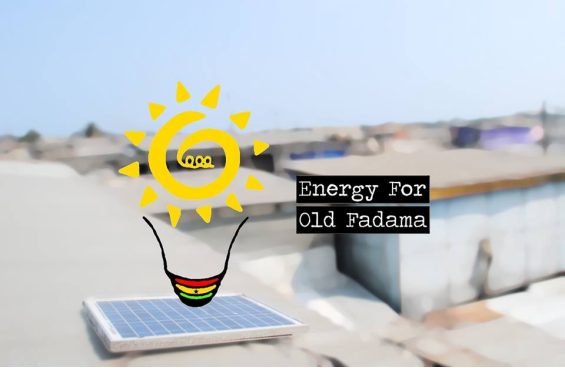
What happens next? How we want to change things.
We want to firmly establish the enterpreneurial side of our social enterprise. We aim to provide a solar alternative for individuals and businesses who want to move away from dangerous connections. Through their custom, we will be able to finance other ventures aimed at providing infrastructural development in Old Fadama. We want to change how slum communities view energy. It is possible to create self-sustaining off-grid networks that can benefit their users, especially if those users have only illegal access to the national grid.
We believe that, given the opportunity, the community can improve it’s own situation. We do not believe we can impose that change, we can offer a safe alternative and hope that the community sees the benefit. Thus far, we have had widespread support from community leaders in Old Fadama, Imams of the local mosques, Ministers from the local churches, and head teachers from the local schools.
Our project will not solve all of the problems facing the residents of Old Fadama. Living in one of the most toxic environments in the world is not conducive to health. Other initiatives must be embarked upon, and will be embarked upon, by other organisations utilising our contacts and any help we can provide them with. We have partnered with the first Legal Advice Centre to be established in Old Fadama, as well as the only NGO based in the slum (Women In Slums Economic Empowerment), and the Old Fadama Residents Association.
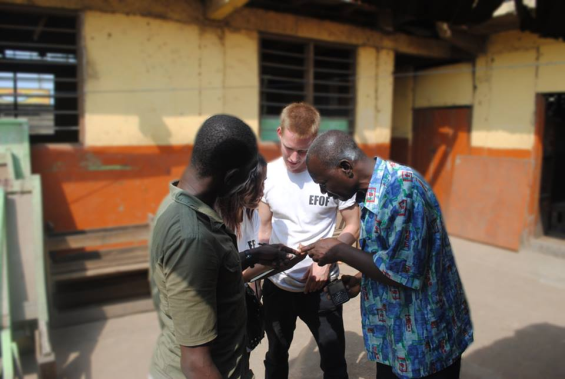
How Are We Going to Create the Change?
Not only will we be fundraising through traditional and non-traditional methods ourselves, but we also aim to forge partnerships with corporate organisations committed to corporate responsibility.
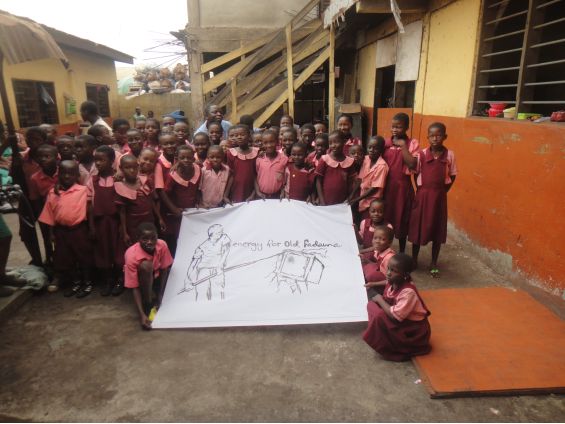
How you can help?
Donate! Your help can make night-classes for children possible, create safe spaces within the slum at night and support a new industry in renewable energy for entrepreneurs in Old Fadama.
In addition to donating, please share our website, our Facebook page, our Twitter, or anything that helps to raise awareness. Believing in our project enough to tell someone about it means an incredible amount to us. For if someone shares it after you, we might be able to reach our goal, helping thousands, just a little bit quicker.
https://www.facebook.com/EnergyForOldFadama
https://twitter.com/EnergyFOFadama
